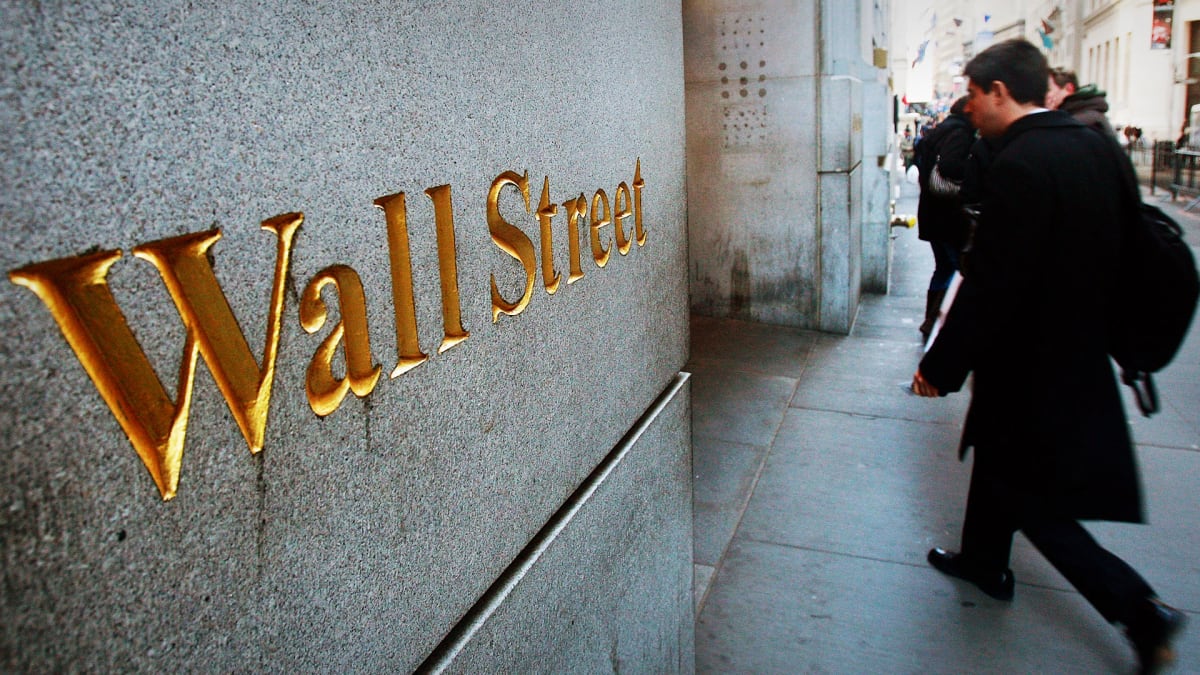
Five things you need to know before the market opens on Tuesday May 2:
1. -- Stock Futures Slip As Fed Begins Two-Day Policy Meeting
U.S. equity futures slipped lower Tuesday, while the dollar held gains against its global peers and Treasury yields edged higher, as investors looked to the start of the Federal Reserve's two-day policy meeting in Washington while absorbing warnings on the fate of the nation's debt ceiling.
Stocks finished modestly lower on Monday, although the S&P 500 was within touching distance of its year-to-date high, as the market sailed through a muted session bereft of earnings headlines and clouded by the sale of First Republic Bank (FRC) to JPMorgan Chase (JPM). Treasury yields have also been edging higher as traders extend bets that, while the Fed is likely to deliver its last rate hike of the current cycle tomorrow, it will likely hold that elevated level in place until late in the year.
The move higher in yields was accelerated in overnight trading by a new warning on the nation's $31.4 trillion debt ceiling from Treasury Secretary Janet Yellen, who said the U.S. could face default risk as early as June 1.
Benchmark 2-year Treasury note yields were marked 4 basis points higher at 4.12% in overnight deal, while 10-year paper was pegged at 3.532%.
The U.S. dollar index, which tracks the greenback against a basket of six global currencies, gained 0.03% to 102.180, with the advance blunted by a surprise rate hike from the Reserve Bank of Australia, which lifted its cash rate by 25 basis points to 3.85%, ramping the Aussie dollar higher in overnight dealing.
In the U.S., markets will navigate a modest earnings calendar prior to the opening bell Tuesday, with updates from Pfizer (PFE) and Uber Technologies (UBER), as well as JOLTS jobs figures and March factory orders data at 10:00 am Eastern time.
Around 162 S&P 500 companies are also scheduled to report March quarter earnings this week, and with around two third of the benchmark reporting so far, collective profits will fall 1.9% from last year to a share-weighted $433.6 billion.
That figure is set to accelerate, with second quarter earnings forecast to fall 4.3%, although the tally improves to a 0.6% gain once profits from the energy sector are stripped away.
Heading into the start of the trading day on Wall Street, futures tied to the the S&P 500, which is up 9% for the year, were priced for a modest 3 point opening bell decline while those linked to the Dow Jones Industrial Average are set for a 50 point dip. The tech-focused Nasdaq was marked 2 points higher.
Overnight in Asia, the region-side MSCI ex-Japan index was marked 0.13% higher into the close of trading, with markets in China closed for the Labor Day holiday. Japan's Nikkei 225 gained 0.12%.
In Europe, the Stoxx 600 was marked 0.3% lower in early Frankfurt trading while London's FTSE 100 gained 0.03% as a big jump for HSBC on better-than-expected first quarter earnings and a $2 billion buyback offset a muted reaction to BP plc's $5 billion in first quarter profits.
2. -- Biden Orders Debt Ceiling Summit As New Default Risk Emerges
Treasury Secretary Janet Yellen told lawmakers late Monday that the U.S. could run out of cash to pay its maturing debt obligations as early as June 1 unless Congress agrees to increase the nation's $31.4 trillion debt ceiling.
President Joe Biden, meanwhile, arranged to meet Congressional leaders at the White House next week, including House Democratic leader Hakeem Jeffries, Senate Majority Leader Chuck Schumer and Republican Senate leader Mitch McConnell, in order to solve the impasse.
Yellen said the U.S., which hit the limit of the debt ceiling on January 19, could use extraordinary measures, as well as tap cash on hand, to provide some cushion to the new debt limit date, but warned of the risks associated with the partisan battle lead by House Republicans.
The nonpartisan Congressional Budget Office, which earlier this year pegged the debt ceiling 'drop dead' date in early July, added the tax receipts through April have thus far fallen short of forecasts, indicating an earlier date at which the government will effectively run out of funds.
"Federal receipts and outlays are inherently variable, and the actual date that Treasury exhausts extraordinary measures could be a number of weeks later than these estimates," Yellen said.
"It is impossible to predict with certainty the exact date when Treasury will be unable to pay the government's bills, and I will continue to update Congress in the coming weeks as more information becomes available," she wrote, urging Congress to act quickly to raise the limit," she added.
3. -- Ford Earnings On Deck As Carmakers Fight Narrowing Margins
Ford Motor Co. (F) shares nudged higher in pre-market trading ahead of the carmaker's first quarter earnings reported expected after the closing bell.
Investors are likely to focus not only on Ford's headline profits, which are forecast to come in at 41 cents per share on revenues of $36.08 billion, but also its near-term projections for cost-controls and EV investments as it grapples with fading car prices and slowing consumer demand.
Last week, Ford rival General Motors GM delivered a better-than-expected first quarter bottom line of $2.21 per share, and lifted its full-year profit forecast by around $500 million, to a range of between $11 billion and $13 billion, but noted that pricing is likely to deteriorate over the second half of 2022 and beyond.
Tesla (TSLA), meanwhile, has launched an aggressive price war in the EV space, telling investors last month that it's prepared to sacrifice margins for market share as it fends off competition in both the U.S. and China.
Ford shares were marked 0.1% higher in pre-market trading to indicate an opening bell price of $12.07 each.
4. -- New Starbucks CEO Narasimhan To Lead First Quarterly Earnings Update
Starbucks (SBUX) shares slipped lower as investors looked to the first quarter earnings report of the world's biggest coffee chain under new CEO Laxman Narasimhan after the closing bell.
Narasimhan, who took over from interim boss and Starbucks founder Howard Schultz on March 20, will need to articulate the group's labor relations strategy, as well as its plans to accelerate growth in China, on his first call with analysts following tonight's March quarter earnings.
Starbucks is expected to post a 10% decline in its adjusted earnings, which are forecast to come in at 65 cents per share, even as revenues are likely to rise 10% from last year to $8.4 billion.
The narrowing margins could reflect Starbuck's rising employment costs amid a series of controversies linked to attempts to form worker unions at hundreds of its U.S. stores. Following shareholder pressure last month, alongside testimony from Schultz on Capitol Hill, Starbucks agreed to an independent review of its labor practices.
Starbucks shares were marked 0.05% lower in pre-market trading to indicate an opening bell price of $114.50 each.
5. -- IBM Plans Hiring Pause, Will Use AI to Replace 7,800 Jobs
International Business Machines (IBM) shares edged lower in pre-market trading following reports that the cloud and software-focused tech group is planning to pause hiring and replace thousands of jobs with artificial intelligence.
Speaking with Bloomberg Television late Monday, IBM CEO Arvind Krishna said he would slow hiring in human resources and certain 'back office' areas of the group, adding that around a third of the group's non-customer facing roles could be replaced by AI and automation over the next five years.
Last week, posted better-than-expected first quarter earnings thanks to solid gains from its software and consulting divisions, and held to its forecast for free cash flow in the region of $10.5 billion. Overall revenues, IBM said, should rise between 3% and 5% on a constant currency basis.
IBM shares were marked 0.05% lower in pre-market trading to indicate an opening bell price of $126.04 each.







